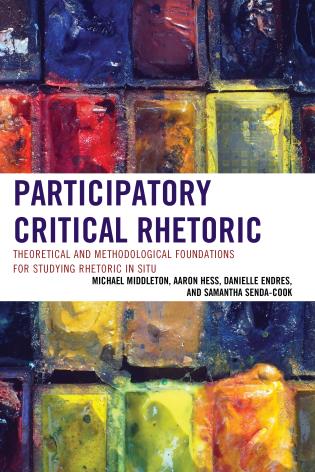I publish on race, media criticism, and rhetorical theory.

Download paper. Just published in Journal of Contemporary Rhetoric. Abstract: Scholars, journalists, pundits and others have criticized the racist, anti-queer, anti-Semitic, Islamophobic, and xenophobic rhetoric that pervades the Trump campaign and presidency. At the same time, commentators have expended a vast number of words analyzing Trump’s character: why does he do the things he does? We ask, how do the latter (analyses of Trump’s character) help explain the former (Trump’s racist statements)? Through a close rhetorical analysis of 50 diverse examples of Trump criticism, we reveal four prevailing characterizations or “archetypes” of Trump: Trump the Acclaim-Seeker, Trump the Sick Man, Trump the Authoritarian, and Trump the Idiot. Each archetype explains Trump’s racism in a different way, with significant consequences for social critique. For example, the Trump the Idiot archetype dismisses his racist statements as a series of terrible gaffes, whereas Trump the Authoritarian explains them as an actualization of white supremacy. We trace the benefits and tradeoffs of each archetype for resisting white supremacy.

Published in QJS. Abstract: This essay suggests that the concept of interdependence provides a rhetorical telos for research ethics. Current field-based rhetoric work advocates for a postcolonial research ethic. However, this is often articulated with a discourse of accountability. Although it has advantages, accountability limits us by excluding ethical pursuit and reifying people as autonomous individuals. In contrast, interdependence helps complete the liberatory trajectory of postcolonial research ethics. Drawing on work in a recent field site, I argue that interdependence encourages scholars to see dilemmas as an opportunity for rhetorical response and ethical lament, helps scholars take creative action to be shaped by participants directly, and helps scholars explain to others why they pursue ethical actions beyond what is socially required.

Published in Quarterly Journal of Speech in 2017. The review begins: As rhetoricians have increasingly begun to analyze rhetoric in situ—from “the field” rather than from an existing text—many scholars have been starting from scratch to identify how such work is rhetorical, and how it is unique compared with other rhetorical methods. Consolidating existing directions, Participatory Critical Rhetoric does foundational theory-building for field-based rhetorical criticism. Michael Middleton, Aaron Hess, Danielle Endres, and Samantha Senda-Cook, who are equal coauthors (in the introduction, we learn charmingly that a random number generator determined author order), develop their prior work to create a nimble and useful synthesis. Link to PDF

Published in Language in Society in 2014. The review begins: A search past silence is an eloquent, poignant story-fication of the literacy practices of six Black male teens. Drawing on over five years of ethnographic research, Kirkland frames his book not as an analytic contribution (of which he is skeptical, suggesting that decontextualized—and thus distorted—research on Black male literacy is prevalent in academia), but rather as a sympathetic, experiential telling with the power to reveal the “heart” (4) of deep ideas about Black male literacy, hopefully triggering in academic readers a compensatory, humbled version of the titular “silence.” Rooted in this narrative approach, then, the book is organized around sixteen short vignettes, with evocative themes like “Meaning,” “Race,” and “Masculinity.” Link to PDF